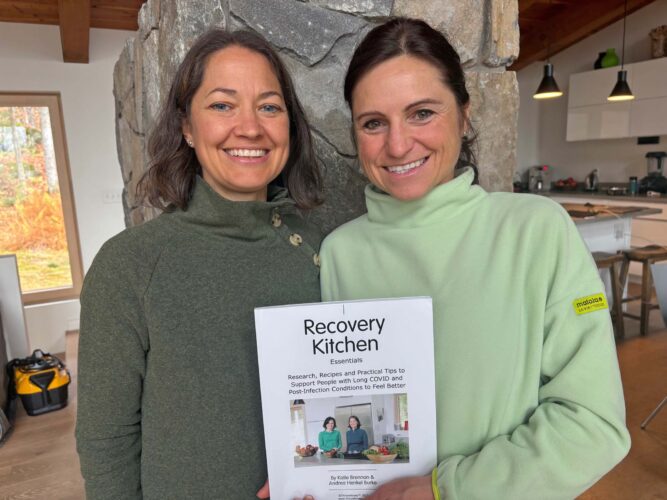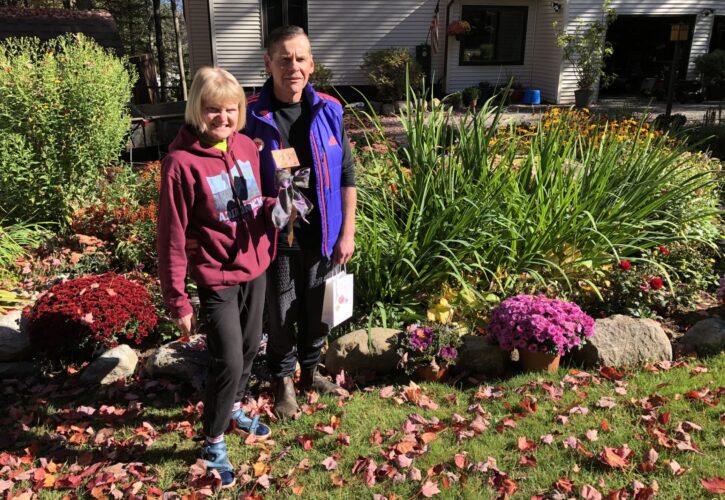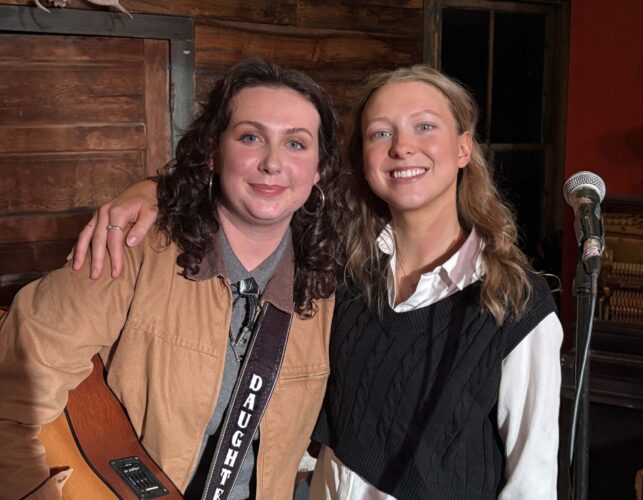ON THE SCENE: Health care: Think globally, act locally

From left are Dr. Maliha Hashmi, Paul Doherty and Dr. Caroline Chung. (Provided photo — Naj Wikoff)
On Monday, Sept. 11, over 800 health care professionals met at New York City’s Union League Club for the C3 Summit to identify some of the critical global health care challenges facing society and, perhaps not surprisingly, learn that acting locally can make a difference.
C3 — Community, Collaboration, Commerce — was founded 12 years ago by Ransel Potter. Based on his decades of international diplomacy, he felt that there was a need and a benefit for bringing together leaders in clinical care and public health who worked in the Middle East and the United States. He pitched his idea to former President Bill Clinton, asking if he agreed on how best to go about it. Clinton said to make a big splash, but then his challenge would be how to keep that energy going, which would tend to require a bigger and bigger splash.
Clinton said another option was to make waves, but they tend to ebb and flow, or go for ripples, as they spread out over time and make the most significant difference; in effect, take the long view. Potter followed the advice that has resulted in additional summits held in the Middle East and China, and his most recent sessions events becoming viewed as the Davos of health care.
John Payne, vice president and chief science officer of PureLife Health Sciences Group, a leader in metabolic disorders, was troubled to learn that his mother and two sisters were all diagnosed with diabetes. Payne’s initial career was in medical equipment, but realizing that three of his family members faced the same disease, he wanted to know why. Seeking that answer required a radical career shift, from contemplating retirement to becoming a leading researcher on metabolic disorders. His work was further focused by an autistic young boy, who had been acting up intensely, who, when confronted by Payne, asked him, “Why me? Why is my life like this?” Later, when Payne was about to leave, the boy said, “Don’t forget me.”
Payne realized that people with autism were far more aware of their situation than many realize and that they wanted and deserved help. He then shifted his focus and shared what he had learned. One sad truth is after billions spent on research, no effective treatment has been discovered; in effect, while improvements in the quality of life for both the person who is autistic and their caregivers can be made, there is no cure as yet. Payne said we can radically reduce the chances of autism, but achieving that goal will take action on all levels, from individuals to how we do business and govern.
“Autism, and associated neurological disorders, cognitive and behavior disorders, indicative issues like sleep disorders and digestive problems, have increased significantly in recent years worldwide,” said Payne. “Autism has tripled in the last two decades, according to research conducted by Rutgers University. Currently, more than 75 million people are living with autism and neurological disorders, and based on our experience working with 73 countries worldwide, if the diagnosed figure is 75 million, it’s double that. According to leading experts, it’s more than 120 million individuals.”
“In 1975, the estimated prevalence of autism was one out of 5,000 children,” Payne continued. “By 2000, per the CDC, the rate was one in 150 children. By 2006, it was one in 54 children, and by 2021 it was one in 36 children. Dr. Stephanie Senna from MIT’s Department of Biology predicted in 2014 that by 2025, one in every two children in the U.S. will be somewhere along the spectrum. If that doesn’t scare you, I don’t know what will.”
Payne said the rate of autism was significantly greater in males than females, approximately a 40:1 ratio, and the top five countries with the highest prevalence of autism and neurological disorders are the oil-producing countries of the Middle East: 1. Qatar; 2. United Arab Emirates; 3. Oman; 4. Bahrain; and 5. Saudi Arabia. He said autism cost the United States approximately $268 billion in 2015, roughly 1.5% of its gross domestic product. By 2025, the price tag is projected to be $461 billion, and by 2030, over $1 trillion.
Payne went on to say that environment and diet matters.
Our Adirondack youth are fortunate to live in such a remarkably healthy environment with such an abundance of clean air and water; however, the American diet since the end of World War II and the explosion of processed food filled with all manner of salt, sugar and additives is destroying our health, in particular by radically damaging the quality of our gut, the microbes in our digestive system. Our bodies are not designed for what we eat, nor are we getting enough sleep and exercise. Another contributing factor is many pregnant and nursing mothers have iron deficiencies, which impacts their babies’ health.
“Addressing microbolic functions through diet and lifestyle can significantly reduce risk factors,” said Payne. “Nutrition, through natural plant-based whole foods and foods that contain natural bacterial supplementation that is anti-inflammatory and leads to a healthy gut core. I sincerely believe in and try to follow, as the World Health Organization put it, that we should all have a diet consistent with the diet our genes are programmed to respond to.”
Ambassador Dr. Deborah Birx, White House Coronavirus Task Force 2020-2021, said critical is engaging the broadest possible involvement of a community or region’s citizens in planning solutions, planning that requires good listening, trust, and collaboration. Dictating actions does not work; only a collective, mutually respective process works, wisdom gained painfully during her struggles to address COVID-19.
Gen. David H. Petraeus, U.S. Army (retired), said tackling any challenge requires articulating a clear vision, developing widespread buy-in and trust, a collective effort, and the willingness to evaluate what is working, what is not, and why, and making adjustments, be it to the vision or any aspect in between.
Addressing autism was by no means the only topic, but one of many facing society in light of climate change, the impact of a worldwide pandemic that is ongoing, environmental pollution, the war in Ukraine, an increasingly polarized society, and corporations putting profit over the well-being of society at large.
Dr. Maliha Hashmi, one of the top seven female health leaders in the Middle East, gave examples of countries like Singapore that are invested in the health of their citizens. She said there are many other good examples: Learn from others and act. Judith Barnett urged people to vote, saying their engagement matters, and for more women to get involved, we need greater parity in all levels of government and the leadership of business and other sectors.
“Climate change is currently exacerbating health problems, from heat-related illnesses to the spread of vector-borne diseases like malaria and dengue fever,” said Potter. “Tragically, climate change socially induced displacement; resource scarcity, and conflicts over critical resources that continue to impact social unrest and even regional or worse, global conflicts.”
The good news is that the participants believe that if we are willing to break out of our silos, work collectively and practice good listening, we can make a significant difference.
“Luck is when preparedness meets opportunity,” said Petraeus.
(Naj Wikoff lives in Keene Valley. He has been covering events for the Lake Placid News for more than 15 years.)



